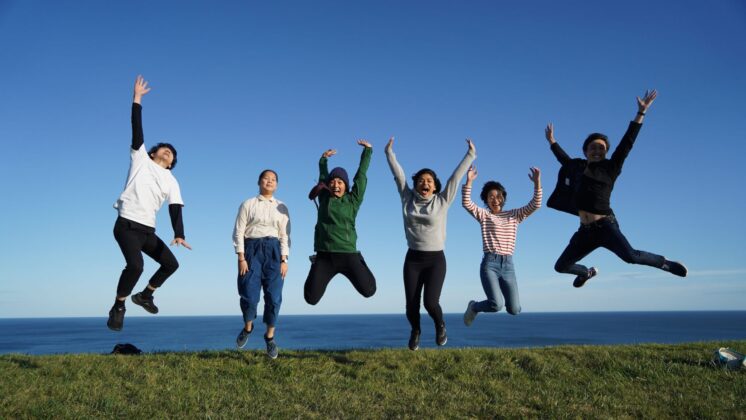With the onset of remote work and online education, opportunities that were confined to urban areas are spreading to the countryside. Add in nature’s charms and traditional artisans, and it’s easy to see why rural areas are making a comeback.
Boundless, a business that connects international youth to rural Japanese communities, was founded by Singaporean entrepreneur Dennis Chia. His learning programs support the economic revitalization of rural communities by taking participants beyond sightseeing.

What inspired you to start a company that works with rural communities?
I’m from Singapore, but I always wanted to study in Japan. Eventually, I got into a Japanese university and traveled around whenever I had time off school. At first, I just went to famous tourist spots. I didn’t really learn any history or talk to any local people.
What changed my outlook was the Tohoku tsunami in 2011. About seven weeks after the disaster, I went to Ishinomaki to volunteer. It was a completely different world than the places I’d been visiting. I was able to experience a lot of things I’d never done in tourist spots: I stayed with local people, talked with them, and learned about their culture.
A lot of foreign students went home after that, but I never hesitated to stay. I knew I had to do something, so I started doing translations related to local arts and crafts. I got to know artisans and farmers. I stayed at the homes of candlemakers and papermakers, and we talked late into the night. I still remember those encounters vividly. I was impressed by the depth of their traditions, but as industries, they were in decline. This was happening all around Japan. I think the tsunami uncovered problems in rural areas that had been ignored.
After getting my degree, I went on to study disasters and rural communities in graduate school. I did comparative research looking at Aceh in Indonesia, Bohol Island in the Philippines, and Ishinomaki in Japan. When I did my field work on social capital, I used a survey adapted from the World Bank, but found that there were parts that were not very relevant to the people’s needs and priorities. This discrepancy bothered me. I felt it reflected the gap between how policymakers and people on the ground understood local problems.
At the time, there was a lot of talk in Japan about “regional revitalization,” so I started looking into that and found similarities to what I’d seen in my research. The government’s revitalization policies weren’t well matched to actual needs.
Did you always want to be an entrepreneur?
Not really. When I finished my master’s degree, I thought about getting a job at an NGO or a socially oriented company, or going for a PhD to keep working on community issues. When I was an intern at Peace Boat (a Japanese NGO) during my first year at graduate school, I met many inspiring colleagues from all over the world who were really passionate about their work with social and environmental issues. I had a few personal projects, as well, where I brought international friends to Tohoku to learn more about these issues. That was when I thought of the slogan “connecting global and local,” which became the motto for Boundless. Starting a company was just a way to make things happen.
“Boundless” has two meanings. The first is the idea of no borders, of building connections between the global and the local. The second is more philosophical. In Buddhism, there’s this idea that material things are temporary. For example, if you learn something from a book, you could burn the book but still have the knowledge. It’s not the physical form that counts, it’s the substance.
I think it’s the same with people. Japan, rural communities—these are physical places, sure, but what really matters are the intangible things, the underlying substance. That’s what strikes a chord with people from different cultures and countries.
For example, our flagship project, Sosei Partners, organizes learning programs for young people, mostly students, to spend time in rural areas and understand the challenges people face there. We’ve brought students to rural towns in Hokkaido, Miyagi, and Ehime. They interact deeply with local people. It’s a very different approach than tourism, and it creates long-lasting ties. One participant, a Spanish urban planning student, went on to make rural revitalization his PhD topic, focusing on the area of Japan he visited with us.

What does the future look like for Boundless?
From a business angle, we have to think about funding this year. When I started, I got funding from local governments. People warned me that subsidies eventually run out, so my attitude was always to make the most of them while I could. Now this year the subsidies are ending, so the challenge is to find alternatives.
I’ve started raising money with local civic groups, and I’m doing program support for another organization that runs rural learning experiences for Japanese high school students. There are still a lot of uncertainties, but I’m confident things are moving in the right direction.
But my dream for Boundless is for the students who have participated in our programs to take their experiences home and start something there. Some have said they want to do something similar to Boundless in their home countries. I’d love to get involved in their projects someday.



